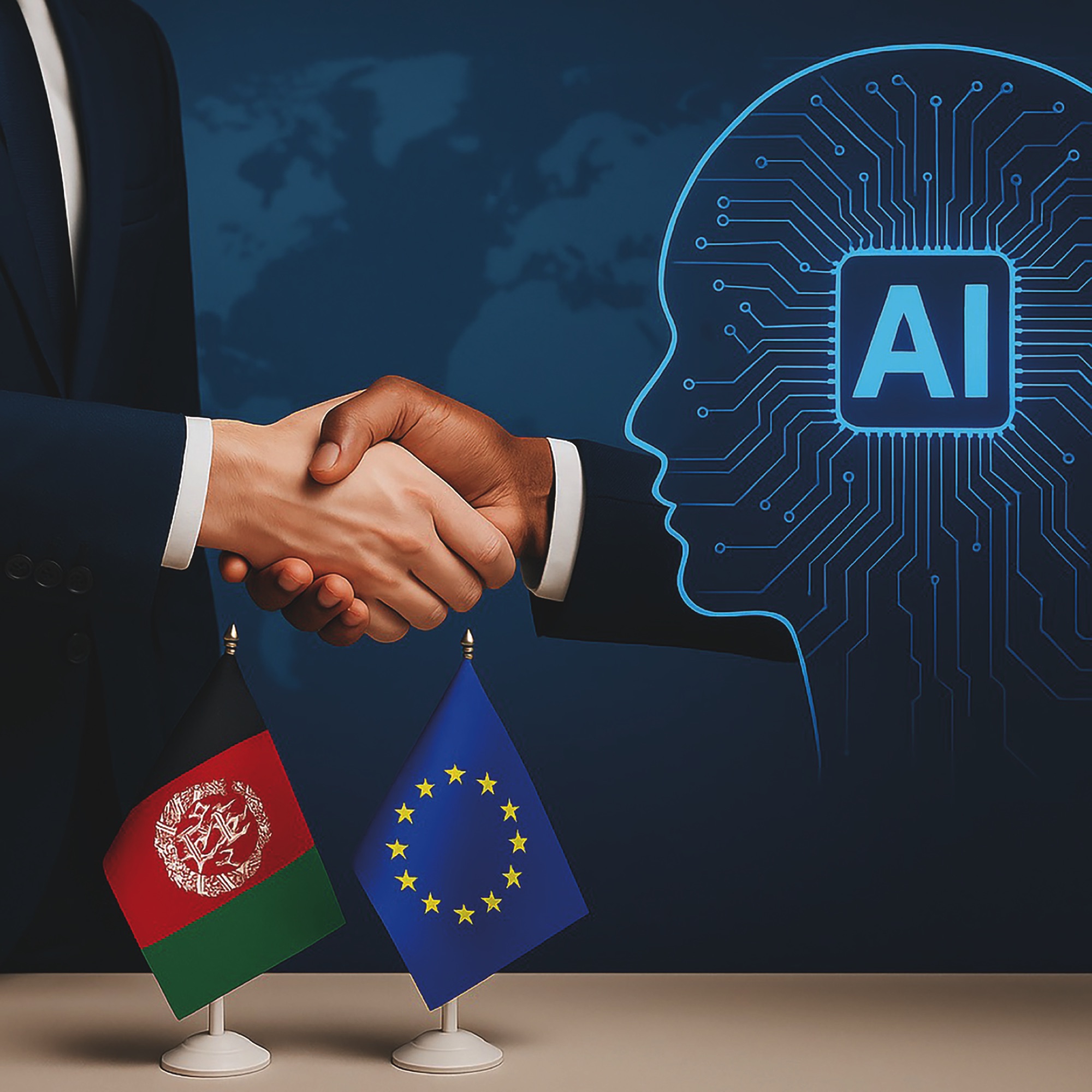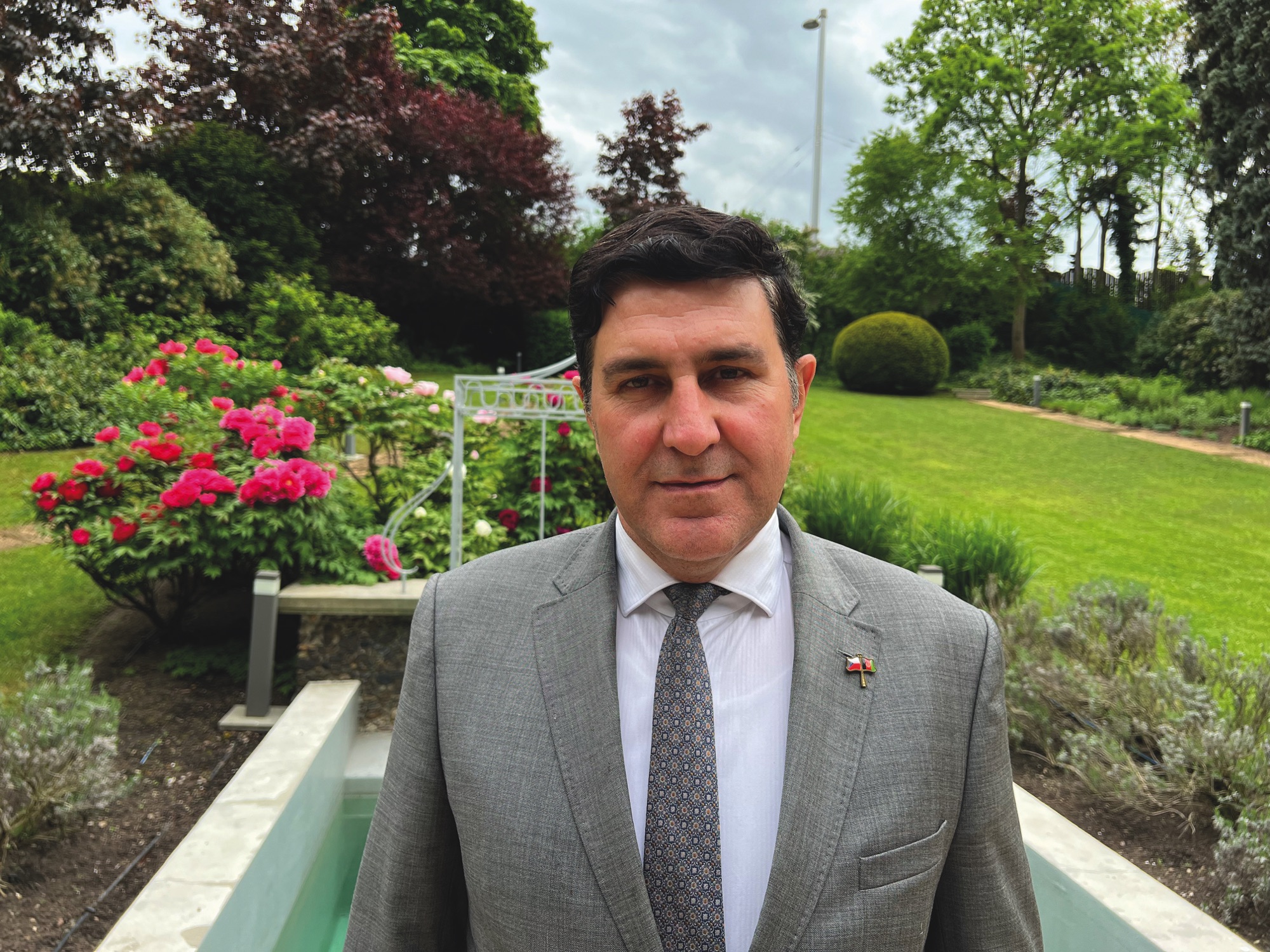
Text: H.E. Mr. Shahzad Gul Aryobee, Ambassador of Afghanistan; Photo: Archive
In today’s rapidly evolving world, artificial intelligence (AI) is no longer just a tool for tech companies — it has become an essential component of modern diplomacy. From streamlining communication and crisis management to enhancing international negotiations, AI-driven technologies are reshaping the practice of diplomacy at an unprecedented pace. At the forefront of this transformation is OpenAI’s advanced language model, a powerful example of how AI can support and strengthen diplomatic efforts — especially for developing countries, which are working to re-engage with the global community during times of transition and rebuilding.
AI’s expanding role in diplomacy
Diplomacy is built on communication, negotiation, and cultural understanding — all of which AI can now enhance dramatically. With capabilities like real-time translation, sentiment analysis, data synthesis, and policy modelling,
AI tools allow diplomats to:
- Interpret cross-cultural nuances more efficiently
- Detect shifts in public opinion or international sentiment
- Monitor global media across languages and platforms
- Draft, review, and refine policy and diplomatic documents faster
Language models such as ChatGPT can simulate dialogues, provide historical or cultural context, and offer rapid research support, thereby elevating the quality and speed of diplomatic engagement.
The next generation of diplomats
Recognizing these advancements, institutions around the world have begun offering training programs such as ‘How AI-Driven Technologies are Transforming Diplomacy’. These programs are not a luxury – they are becoming a necessity for both experienced diplomats and new recruits.
Key areas of learning include:
- Understanding AI’s strengths and limitations
- Ethical considerations in AI use within diplomacy
- Real-world applications: negotiation, conflict prevention, media tracking, and data-driven policy decisions
- Case studies of AI integration in embassies and multilateral organizations
As global diplomacy adapts, mastery of AI tools will be a core skill for staying relevant and effective.
Why this matters — especially for developing countries
In an increasingly fragmented world, where geopolitical tensions are rising and diplomacy faces new challenges, countries must modernize their foreign policy infrastructure. For developing countries — a nation striving to restore its international presence — this modernization is urgent and vital.
AI technologies offer strategic advantages:
- Cost-effective tools for embassies with limited resources
- Remote collaboration platforms to bridge political and geographic gaps
- Data-driven forecasting that supports informed, forward-looking foreign policy in fragile contexts By training diplomats in AI-based technologies, the country can develop a new generation of envoys — globally fluent, technically equipped, and culturally grounded — capable of navigating the complexities of international relations in the 21st century.

H.E. Mr. Shahzad Gul Aryobee, Ambassador of Afghanistan
Ethical use of AI in diplomacy
Despite AI’s enormous potential, its use must be accompanied by ethical oversight. Issues such as algorithmic bias, data security, privacy, and misinformation require thoughtful regulation and responsible leadership.
AI is not a replacement for human insight — it is a powerful complement. A well-trained diplomat, guided by experience and cultural sensitivity, can use AI to make better decisions, foster dialogue, and represent their nation with integrity.
A call to action: Embracing the AI era
As diplomacy enters a digital era, countries that invest in AI capacity will lead in global influence and innovation. For developing countries, this is more than a trend — it’s a unique opportunity to reclaim its place in global affairs, not by following others, but by shaping its own future with smart, ethical, and strategic adoption of AI tools.
In a world where technology shapes geopolitics, AI-literate diplomats will be the architects of peace, partnership, and progress.
Developing countries that neglect innovation, skills investment, and digital adaptation may fall behind, while those who embrace these changes will shape the future.
References:
- OpenAI. (2024). Exploring the Impact of Language Models on Global Communication and Policy. https://www.openai.com
- United Nations Institute for Training and Research (UNITAR). (2023). AI for Diplomacy: Leveraging Artificial Intelligence for Global Governance and Negotiation.
- Global Diplomatic Forum. (2024). Course Brief: How AI-Driven Technologies Are Transforming Diplomacy. https://www.gdforum.org
- Brookings Institution. (2023). AI and Foreign Policy: Preparing Diplomats for the Digital Age.
- World Economic Forum. (2023). AI Governance and Ethics: Implications for International Relations.

